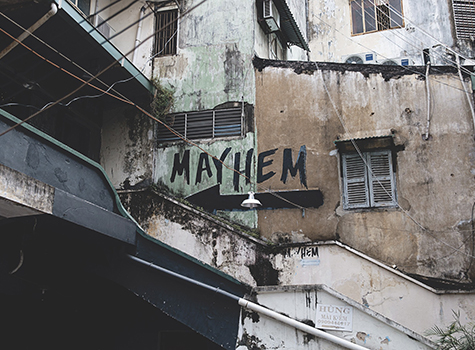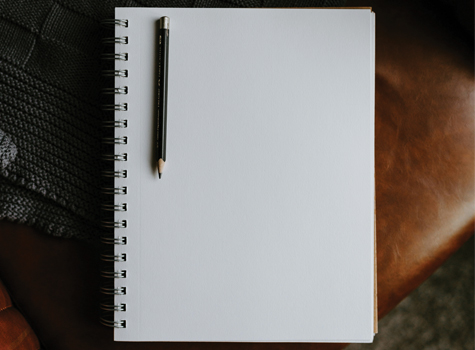By Jennifer Allen

“The choice for mankind lies between freedom and happiness and for the great bulk of mankind, happiness is better.” ~ George Orwell (1984)
As far back as I can remember, there has been some form of fiction to describe a possible broken society that we as human beings could potentially create. Often these stories fall into one of three different categories: governmental infringement, corporate totalitarianism, and reactionary primitive feudalism.
Governmental infringement is probably the version most are familiar with. This is where the ruling body puts in place specific rules which are meant to keep the general populace “safe” when in truth this is simply a means of control. George Orwell’s 1984 is a perfect example of this trope, though more recent examples would be Veronica Roth’s young adult Divergent series or the film Minority Report.
What frightens me most is these types of stories are often based on fact. George Orwell had very clear conceptions when he wrote about ‘The Party’ (an overarching entity that controls the populace through socialist means), ‘Big Brother’ (a central leader figure who uses charisma through various types of media to quell the masses), and the ‘Thought Police’ (a secret task force who uses constant surveillance to observe the general populace and then punish those who don’t agree with The Party’s ideals).
Do all of those sound familiar? And this was from a book written in 1949.
The second most popular is reactionary primitive feudalism which is where the world has reverted to more tribal style of society. Often the cause of this is an outside source such as nuclear war, environmental change, governmental or economic collapse, or a world ravaging disease. The Mad Max films, Snowpiercer, and The Last of Us video games are just a few stories where people must deal with not only the harsh environment but also fellow human beings who will do just about anything to survive. Generally this involves becoming much more brutal by nature.
Finally there’s the dystopian societies run by corporate totalitarianism. These are generally ones who are run by an overarching corporation who has created such a monopoly that they’ve also managed to gain political power. Because of this, both workers and consumers are often exploited by this political-industrial conglomeration, and eventually individual free will is removed. An example of this the “Buy ‘N Large,” corporation in the Pixar film, Wall-E in which the US president also happens to be the company’s CEO.
The first concept of a political dystopia is often easier to recognize within fiction, since it exaggerates certain behaviors, trends and patterns to make them more noticeable to the audience. However, there is always a real-world comparison to which a dystopian story is based. George Orwell specifically used Josef Stalin, Adolf Hitler, and Napoleon Bonaparte among others as influences for ‘The Party’ while writing 1984.
While the world has not quite hit a definitive state of dystopia as yet, there are tiny cracks that have begun to peek through the democratic wall of certain countries.
In Hungary, for example, panic over the pandemic has begun a downward spiral of the country’s democracy. The legislature gave Prime Minister Viktor Orban totalitarian power pretty much indefinitely. Because of this all lower courts are suspended and free speech has become restricted.
Various local governments here in the US have had to create ever shifting restrictions as a precaution to keep the populace safe. The problem then arises when so many regulations are put into place that people almost feel like they’re under house arrest. I realize there are good intentions behind such rules, but humans are by nature social creatures. For some, the forced isolation has already yielded some terrible results to both our psychological and economic states.
As far as corporate monopolies achieving power, a few immediately spring to most people’s minds. Apple. Facebook. Disney. Netflix. Amazon. Google. These and others have burrowed their brand into our daily lives, and either trampled over or simply bought out their competition. While their initial goals may be different, their overall goal seems to be ‘converting’ the general populace to use their products whether we like it or not.
I still hold out hope, however as we’re also hearing about people are coming together in ways that didn’t seem possible just a few months ago. There’s plenty of heartwarming stories in the news about incredible acts of kindness and generosity; from shopping for neighbors to buying meals for first responders to various companies and charity organizations sewing face masks and giving them out for free to keep everyone safe.
Still… despite the eerie silence in public spaces, the preventable deaths that should weigh heavily on the consciences of public officials, even despite the authoritarian tendencies of too many leaders, the world at large has not devolved into a dystopia… yet.
Fictional dystopian tales are there to warn us of preventable futures. The creators of these stories have shown us one of many possibilities to avoid the collapse of human society as a whole. It’s now up to us to heed those warnings and keep this idea where it belongs… as an idea rather than reality.
Jennifer Allen works at Saathee and is also a Podcaster, Blogger, Photographer, Graphic Artist, Gamer, Martial Arts Practitioner, and all around Pop Culture Geek.



